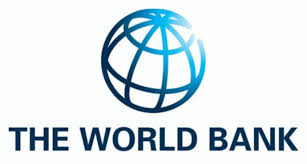The World Bank has blamed poor institutional capacity at the state level for the weak performance of Nigeria’s $700 million Sustainable Urban and Rural Water Supply, Sanitation and Hygiene (WASH) Programme, nearly four years after it was approved. The programme, which aims to improve access to clean water, sanitation, and hygiene services across seven Nigerian states, has made little progress, with only a small portion of its funds disbursed.
In a report dated June 3, 2025, titled Implementation Status and Results Report for Nigeria’s WASH Programme-for-Results, the World Bank raised serious concerns over delays in project execution. The report followed a mid-term review held in late 2024. According to the findings, many state-level officials did not fully understand the Programme-for-Results (PforR) funding mechanism, leading to delays in budget allocations and slow implementation of critical infrastructure projects.
The bank stated that the poor understanding of the PforR model led to a weak start, especially in procurement and execution of infrastructure activities like boreholes, toilets, and water facilities in schools and healthcare centres.
To address some of these issues, the programme was restructured in February 2025. The restructuring involved revising key disbursement-linked indicators and aligning them with Nigeria’s national sanitation strategy and global standards. However, this move has not yielded major results. As of May 2025, only $93.59 million had been disbursed from the revised $670.21 million funding commitment—just 14 per cent of the total.
The World Bank rated overall implementation and progress towards the programme’s goals as “moderately unsatisfactory.” The initial target was to reach 6.1 million Nigerians with basic drinking water by 2027, but so far only 58,585 people have benefitted. States initially reported 83,580 people for verification, but further checks revealed that procurement delays were a key reason behind the failure to meet targets.
Among the seven states involved in the programme, only Delta, Ekiti, Gombe, and Katsina submitted results for verification during the second year. Of these, Katsina led in water access delivery, with 36,835 people reportedly gaining access to clean drinking water.
Sanitation results were even worse. Only Katsina submitted data under the sanitation indicator, and out of 86 reported sanitation facilities, just one met the required standards. Similarly, for institutional WASH (Water, Sanitation, and Hygiene) facilities in schools and healthcare centres, only 22 out of 43 facilities met the standards. These were verified across Ekiti, Gombe, and Katsina states.
The bank cited procurement delays and poor understanding of design requirements as the main reasons behind the poor performance. Only 18 urban and four rural WASH facilities passed verification, a result considered far below expectations for the programme’s second year.
Despite establishing State Programme Implementation Units (PIUs) in all seven participating states and recruiting 98 per cent of the required staff, challenges remain. A major problem is the use of different accounting software by each state, which has made it difficult to consolidate financial reports.
The report also noted that while gender-based violence (GBV) committees and grievance redress mechanisms have been put in place, progress on gender inclusion is poor. None of the engineering or technical roles in the WASH programme were filled by women. Women’s leadership roles in community WASH groups were mainly limited to positions like treasurers, with no strategic or executive responsibilities.
Another setback was the lack of progress on improved urban sanitation. The performance indicator for improved sanitation in urban areas remained at zero. No state was able to achieve any results under the open defecation-free (ODF) verification indicator, despite some claiming entire local government areas had been declared ODF. The World Bank stated that confusion around the disbursement-linked indicator for ODF status contributed to this failure.
The report noted that some infrastructure works were ongoing in states like Kaduna, Ekiti, and Plateau, but warned that unless urgent action is taken to strengthen state-level implementation capacity, the programme risks falling short of its objectives.
Political and fiduciary risks were rated “high” by the World Bank, while the overall risk rating was kept at “substantial.” The WASH programme became effective in January 2022 and is scheduled to end by June 2027.
